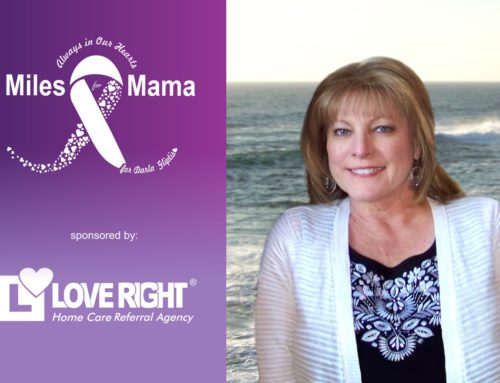
The Family Caregiver; Where to draw the line.
Many people tend to fall into the role of a caregiver without even recognizing the fact that they are.
It’s easy to stay involved with your tasks and care duties, forgetting to see what’s beyond your life in the moment. In many cases the stress starts to build and the overwhelming experience will sneak up on you. Not all caregiving roles become distressing, but it depends on the environment and personalities at play. It’s important that the family caregiver take periodic breaks and ask for help regularly to avoid a catastrophic event.
Learning from my involvement with Family caregivers, these are some of the common responses I hear:
“Well, my mom just lost her husband of 50+ years, and we couldn’t stand to have her home alone. What started as companionship and avoiding isolation, now has become my new job”
– and –
“It started out as needing help at home after a recent surgery but now I am over there every day helping with just about everything”.
– or –
“Dad just doesn’t want anyone in the house except me“.
My advice is to draw a line in the sand. Make an effort to know what your limit will be once your educated about how bad it can get. Don’t let yourself go past your comfort zone without asking for additional help. I’m passionate about remaining a family member without building resentment in any relationships. Your family may want it their way or no way at all. Like any relationship, there’s compromise that should exist when there’s strong opinions that affect both sides. If the family caregiver needs help but the care receiver isn’t comfortable with a stranger in the home, a family talk should ensue. There are always options for help.
The Typical Family Caregiver
According to AARP’s Public Policy Institute and the National Alliance for Caregiving, the average typical family caregiver is 49 years old, female, married, works, has children and earns $45,000 annually. Those caregivers provide at least 21 hours of unpaid care per week average 5 1/2 years in that role with the expectation that they will be doing it a minimum of five additional years. Most report they are emotionally distressed.
Many because they try to do it all themselves. And the saddest part is the caregiver tends to not take time for themselves and often neglects their own health.
I often see many caregivers forgetting their roles of spouse, daughter, son and now becoming the caregiver and sometimes resenting it.
Learn to ask for assistance and know your local community resources and support groups.
The next article will identify some of these organizations, who and how to ask for help and what they can offer.
If you or someone you care about is a family caregiver struggling with balance and feeling overwhelmed, Ask for help from family first. If family lives too far or works too often, call us to schedule a No Obligation CAREConsult™ with a Love Right™ Care Service Representative.









[…] with personal needs. Caregivers take on a major commitment and it oftentimes can come unexpectedly, as discussed in this previous Love Right blog post. This can introduce extra stress and could be a detriment to the caregivers finances. They may have […]
[…] It gets easier – People do most of their “life-fighting” during the younger years, while building their life, so when they’re older it takes less energy to do more. […]
[…] our opinion, it’s especially important to keep family involved in decisions. Consider the reasons why seniors are more susceptible to cyber-crimes. […]
[…] care services offer is an elder companion. An elder companion spends time with your loved one to prevent social isolation. Social isolation has become a critical issue among the elderly population, leading to negative […]